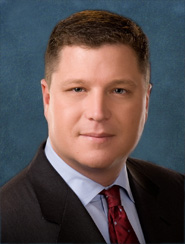
Florida has been a national leader in expanding parental school choice via magnets, charters, vouchers, tax credit scholarships, career academies and virtual classes. Now a state lawmaker wants to hasten the customization wave by opening up choice at a more fundamental level: Class by class.
A bill filed by freshman Sen. Jeff Brandes, R-St. Petersburg, would allow providers of all stripes to create state-approved “charter courses” in K-12 and higher ed, and allow students to choose a la carte.
“We’re offering choice within choice,” Brandes said in a podcast interview with redefinED, attached below. “You might go to a charter school. And then you’d say, ‘Look, I want to take the MIT version of physics. So can I take the MIT version of physics from my charter school?’ Why aren’t we letting students do that?”
Brandes, a member of the Senate Education Committee, does not shy from ahead-of-the-curve ideas. As a state representative two years ago, he sponsored a bill to create education savings accounts. Last year he led a successful effort to make Florida a test site for self-driving cars (and was both attacked for it in a senior-scaring political ad and given free, positive publicity from the likes of Forbes and The Atlantic). This year, he’s sponsoring legislation to transform public libraries.
Course choice is a new frontier. Louisiana created a head-turning course choice program last year. Brandes’ bill puts emphasis on STEM fields and industry certifications. He said he got the idea from watching a YouTube video of Clayton Christensen, in which the Harvard business professor talked about accrediting individual courses.
“And when he said that, I remember rewinding it, and thinking about that concept again,” Brandes said. “And I must have rewound it two or three times and I went, ‘Wow. This is a radical idea.’ And I instantly got where all this could go. Because you think about the variety of people that spend so much time and energy and effort creating all of this content, when you could have only a handful of people creating really high-quality content – and instructors now really coaching on that content.”
Students will benefit when providers compete to create the best classes, he said.
“That’s the beauty of this concept. It allows anyone to kind of open-source their idea. I mean, I could see Wikipedia putting together a course. I could see Harvard University putting together a course. I could see Mrs. Jones from my high school putting together a course on American history – because she’s really passionate about it, and she thinks she could get that information across better than anybody else could.”
Brandes also filed a bill to create a pilot project for “micro-credits.” The goal there: to allow students to string together approved projects that better hew to their individual interests yet still meet course goals and culminate in a full credit.
So, choice within choice within choice? Is Florida ready for that?
“This is going to occur,” Brandes said. “Whether this occurs in three years or 10 years or 15 years, we can kind of see the tsunami coming at us. And there’s no way that we can change that. Online education is getting so much better every year that it won’t be long before we’re really talking about hybrid courses. And then it won’t be long before we’re seeing individual courses being accredited – with or without this bill occurring. My goal here was to just really heighten it – heighten the level of conversation about these two ideas, and maybe taking it from a 10-year time horizon to a two-year time horizon.”



[…] bill would expand the number or online courses available, moving a step closer to allowing students to choose their classes a la carte from a list of state-approved charter […]